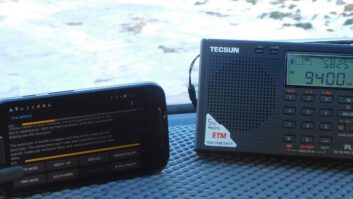The author is membership program director of the National Federation of Community Broadcasters. NFCB commentaries are featured regularly at www.radioworld.com.
Recently it was announced that some of the biggest radio networks in the United States had agreed to terms with the Federal Communications Commission over failures related to the Electronic Public Inspection File system. The situation is an important reminder of several matters.
What is the issue? In February, Alpha Media, Beasley Media, Cumulus Media, Entercom, iHeartMedia and Salem Media Group informed the FCC that they had detected omissions in reporting related to the EPIF’s political file requirements. These regulations for commercial broadcasters are most interesting to the public for transparency purposes, as they provide a glimpse into ad spending by political candidates.
Closer to November, it’s a safe bet political files will be watched by journalists and the public. Earlier this winter? Maybe not as much, which may explain the FCC’s light touch as far as penalties go — no fines, and simply securing a commitment to do better.
[Read: Community Broadcaster: Turned Up]
Pockets in the commercial and noncommercial radio world have blanched at this decision for good reason. Although the FCC was rather generous to give leeway due to the pandemic, these issues were reported more than a month before shutdowns and presumably caught much earlier. However, admonishments by the FCC rather than fines over political file issues are not without precedent. Last October, the FCC reprimanded several stations rather than issue fines. In December, two Georgia television stations also received FCC rebuke, but no fines, for political file violations.
Although the commission has been benevolent as far as financial penalties in recent months — the dramatic fine reduction for two Boston pirate radio operators being among the marquee examples — every station should assume such relaxed discipline over EPIF violations will only last so long.

What do noncommercial broadcasters need to know about the EPIF? In general, full-power stations are required to keep a variety of records for public review, including contour maps, ownership reports, Equal Employment Opportunity records and Programs/Issues Reports (essentially demonstrations of the educational nature of your broadcasts). Many records must be collected quarterly, although altered operations have changed timetables in a few instances. Then, you must upload those documents to the FCC’s EPIF database and provide a link from your website to your file there.
Low-power broadcasters are not required by the FCC to keep a public inspection file, but, like full-power stations, must keep a political file and maintain those records going back two years. Inside of a station’s political file is your quarterly history related to underwriting, airtime requests, appearances by candidates and documentation of air times and dates for same.
As a former program director, I can tell you the political file was one of the more irksome beasts during the election season. There is no shortage of candidates who wanted interviews, underwriters clamoring to have their say, and forums to be held. However, it was nevertheless important for the station. It was even more important for the public, as a device for democracy.
Fines or lack thereof may draw eyes and ears, but let us always keep in mind the importance of these sometimes overlooked records to our communities and country.







